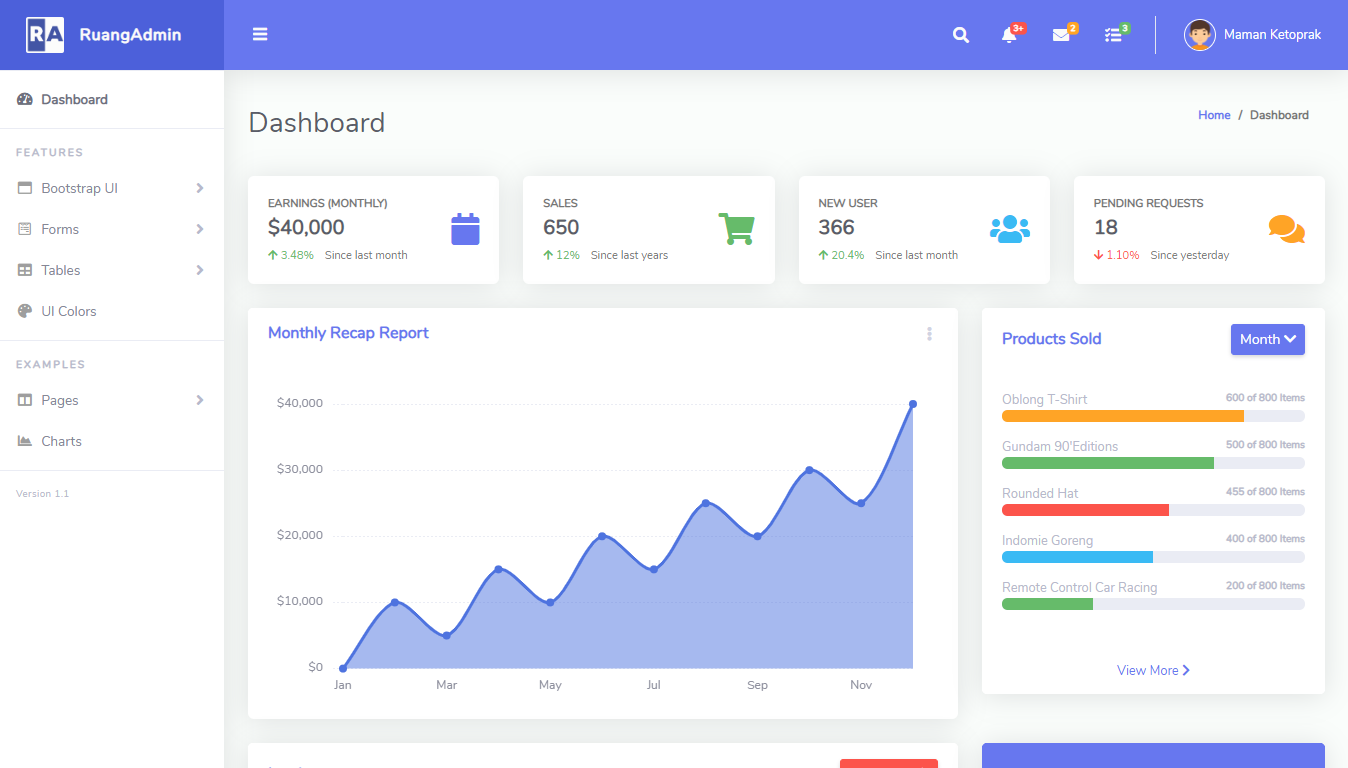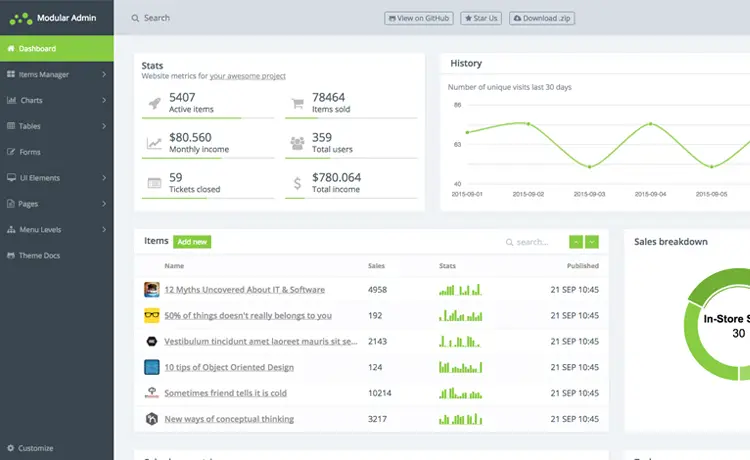Deserialize JSON to a dictionary in C#
By Tan Lee Published on Feb 05, 2025 1.11K
Deserialize to a Dictionary<string, string>
If the JSON has simple key-value pairs with string values, you can deserialize it into a Dictionary<string, string>.
{
"Product": "Laptop",
"Brand": "Dell",
"Price": "1200"
}To deserialize this JSON, use the built-in JsonSerializer.Deserialize() method from System.Text.Json and specify Dictionary<string, string> as the target type:
using System.Collections.Generic;
using System.Text.Json;
string json = "{ \"Product\": \"Laptop\", \"Brand\": \"Dell\", \"Price\": \"1200\" }";
var dictionary = JsonSerializer.Deserialize<Dictionary<string, string>>(json);
foreach(var (key, val) in dictionary)
{
Console.WriteLine($"{key} = {val}");
}This code will output:
Product = Laptop Brand = Dell Price = 1200
Deserialize a Nested Object to a Dictionary
When dealing with JSON objects that contain nested objects, you have a couple of options to deserialize:
- Deserialize to
Dictionary<string, class>whereclassrepresents the nested object. - Deserialize to a nested dictionary.
Deserialize to Dictionary<string, class>
If your JSON has nested objects, you can create a corresponding class for the nested structure.
{
"Employee1": {
"Name": "Alice",
"Age": 30
},
"Employee2": {
"Name": "John",
"Age": 28
}
}You can create a Person class to represent the nested object:
public class Person
{
public string Name { get; set; }
public int Age { get; set; }
}Then, deserialize the JSON into a Dictionary<string, Person> like this:
using System.Collections.Generic;
using System.Text.Json;
string json = "{ \"Employee1\": { \"Name\": \"Alice\", \"Age\": 30 }, \"Employee2\": { \"Name\": \"John\", \"Age\": 28 } }";
var dictionary = JsonSerializer.Deserialize<Dictionary<string, Person>>(json);
foreach (var (key, val) in dictionary)
{
Console.WriteLine($"{key} = {val.Name}");
}This will output:
Employee1 = Alice Employee2 = John
Deserialize to a Nested Dictionary
If you don’t want to create a class, you can deserialize to a nested dictionary.
Consider this JSON:
{
"Car1": {
"Brand": "Toyota",
"Model": "Corolla"
},
"Car2": {
"Brand": "Ford",
"Model": "Focus"
}
}You can deserialize it as follows:
using System.Collections.Generic;
using System.Text.Json;
string json = "{ \"Car1\": { \"Brand\": \"Toyota\", \"Model\": \"Corolla\" }, \"Car2\": { \"Brand\": \"Ford\", \"Model\": \"Focus\" } }";
var dictionary = JsonSerializer.Deserialize<Dictionary<string, Dictionary<string, string>>>(json);
foreach (var (key, nestedDictionary) in dictionary)
{
Console.WriteLine(key);
foreach(var (property, val) in nestedDictionary)
{
Console.WriteLine($"\t{property} = {val}");
}
}This outputs:
Car1
Brand = Toyota
Model = Corolla
Car2
Brand = Ford
Model = FocusDeserialize to Dictionary<string, object>
If your JSON has properties with mixed data types (strings, integers, booleans), it’s recommended to either create a class for the structure or deserialize it into a Dictionary<string, object>. For this, you can use Newtonsoft.Json.
Consider this JSON with mixed data types:
{
"Name": "Alice",
"Age": 30,
"IsEmployee": true
}Using Newtonsoft.Json to deserialize:
using System.Collections.Generic;
using Newtonsoft.Json;
string json = "{ \"Name\": \"Alice\", \"Age\": 30, \"IsEmployee\": true }";
var dictionary = JsonConvert.DeserializeObject<Dictionary<string, object>>(json);
foreach (var (key, val) in dictionary)
{
Console.WriteLine($"Key = {key}, Value = {val}, Type = {val.GetType().Name}");
}This will output:
Key = Name, Value = Alice, Type = String Key = Age, Value = 30, Type = Int32 Key = IsEmployee, Value = True, Type = Boolean
The reason Newtonsoft.Json is used here is because it correctly deserializes into the expected object types, which differs from System.Text.Json that would require extra steps to get the actual underlying values.
- Structured Data using FoxLearn.JsonLd
- Breadcrumb (BreadcrumbList) structured data
- Article (Article, NewsArticle, BlogPosting) structured data
- Building Dynamic Structured Data with JSON-LD in ASP.NET Core
- Serialize and Deserialize a Multidimensional Array in JSON using C#
- JSON object contains a trailing comma at the end which is not supported
- How to use JsonDocument to read JSON in C#
- How to use JsonExtensionData in C#





